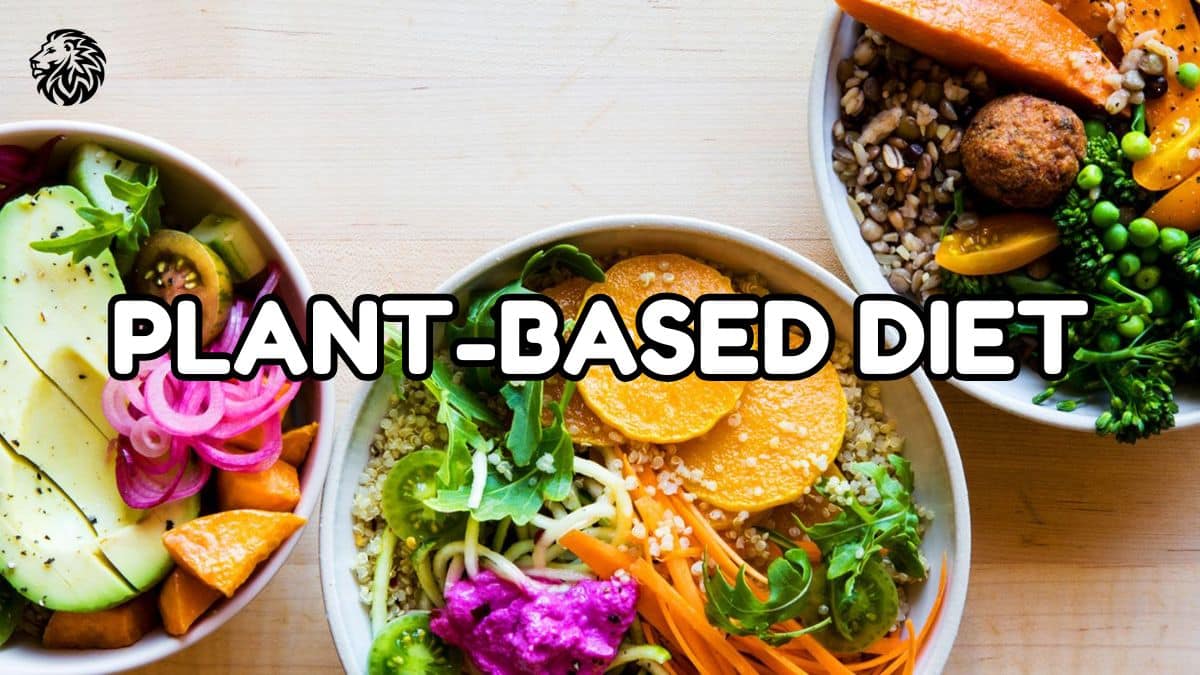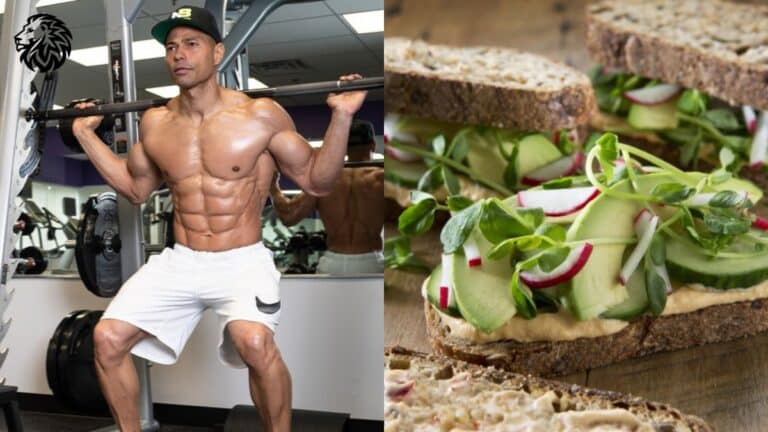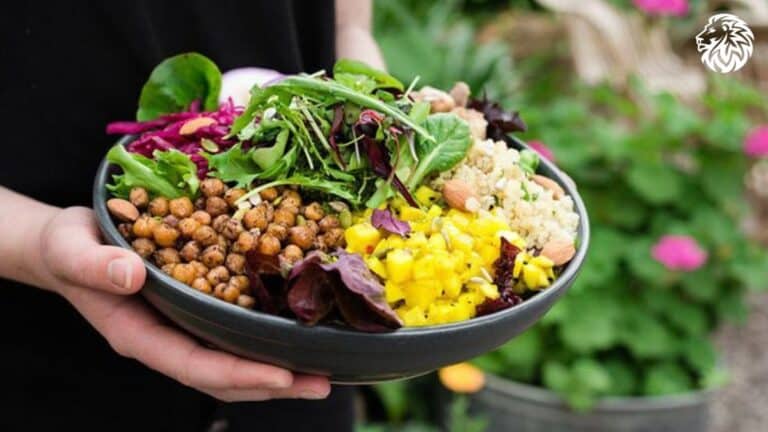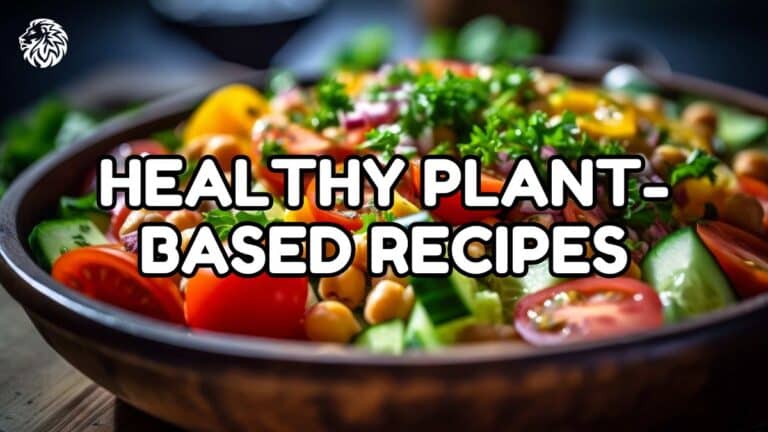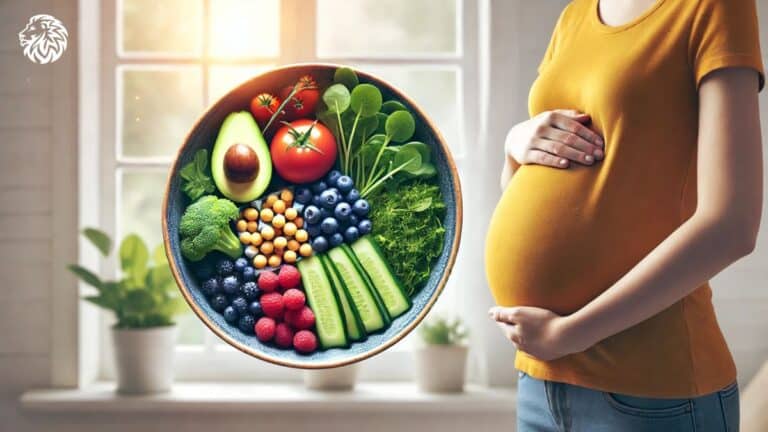Plant-Based Diet Basics
Understanding Plant-Based Nutrition
Switching to plant-based eating is like inviting a bunch of nutritional powerhouses to your dinner table. You’ve got your proteins, fats, carbs, vitamins, and minerals—all vying for a spot on your plate. Experts give a thumbs-up, saying a thoughtfully crafted meatless diet can hit all the nutrient checkboxes, proteins included (Healthline).
| Nutrient | Where to Find It |
|---|---|
| Protein | Lentils, chickpeas, tofu |
| Fats | Avocado, nuts, seeds |
| Carbs | Whole grains, fruits |
| Vitamins | Leafy greens, fortified foods |
| Minerals | Nuts, whole grains |
No matter if you’re expecting a baby, running marathons, or enjoying your golden years, a plant-based diet can be your go-to for health at any age (Down to Earth Organic & Natural). Sure, it’s packed with fiber and phytonutrients, but don’t slack on vitamin B12—it might need a little extra love through supplements (Harvard Health Publishing).
Hungry for more details? Get the full scoop in our plant-based nutrition guide.
Benefits of a Plant-Based Diet
Jumping on the plant-based bandwagon can do wonders for your health, especially if shedding some pounds is on your to-do list. Here’s why you might want to give it a whirl:
- Manage Your Waistline: Ditching animal products could mean fewer calories, which can help if you’re trying to lose weight.
- Heart Happiness: Studies say vegetarian and vegan diets could be your heart’s BFF, fighting off heart disease and blood pressure issues (Harvard Health Publishing).
- Tackle Diabetes: A plant-based diet might lower your chances of type 2 diabetes crashing the party.
- Fight Cancer: Packing your diet with fruits, veggies, and grains could keep certain cancers, like colon and breast, at bay (Harvard Health Publishing).
- Live Longer: The science says folks who eat more plants tend to stick around longer and dodge chronic diseases.
For the full rundown on these health perks, head over to our deep-dive on plant-based diet benefits.
These reasons are why people are gravitating towards plant-based living. New to the whole scene? Jump into our beginner’s guide or get cooking with some easy plant-based recipes to kick things off.
Cheap and Tasty Protein Picks
Keeping your wallet happy while munching on a plant-based diet is a win-win. We’ve got some pocket-friendly protein options here that pack a punch and taste great.
Lentils: Your New Best Friend
Lentils are like tiny powerhouses, giving you more than half of the fiber you need in just one cup. These guys are also loaded with folate, manganese, and iron. Whether you’re throwing them into a soup, making stews, adding to a salad or crafting veggie burgers, lentils bring it all.
| Nutrient | Amount Per Cup (198g) |
|---|---|
| Protein | 18g |
| Fiber | 15g |
| Iron | 37% of the RDI |
| Folate | 90% of the RDI |
Split Green Peas for the Win
Split peas are not just for soup! With 23 grams of protein in 100 grams, these can go into burgers, fritters, or salads. They’re like the secret weapon you didn’t know you needed, and they won’t break the bank.
| Nutrient | Amount Per 100g |
|---|---|
| Protein | 23g |
| Fiber | 8g |
| Iron | 16% of the RDI |
| Folate | 16% of the RDI |
Seitan: Meat Who?
Want that meaty texture without the meat? Seitan’s got your back, with 19 grams of protein per serving. Perfect for stir-fries, sandwiches, or those days when you’re pretending you’re a top chef. Whip it up from scratch or grab it ready-made; your call.
| Nutrient | Amount Per 100g |
|---|---|
| Protein | 19g |
| Iron | 9% of the RDI |
| Calcium | 2% of the RDI |
| Fiber | 0g |
Chia Seeds: Tiny But Mighty
Don’t let their size fool you—chia seeds pack a protein punch at 17 grams per 100 grams. Toss them into smoothies, sprinkle on oatmeal, or use them to replace eggs in baking. They’re like your kitchen’s secret stash of nutrition.
| Nutrient | Amount Per 100g |
|---|---|
| Protein | 17g |
| Fiber | 34g |
| Calcium | 63% of the RDI |
| Iron | 42% of the RDI |
Get Friendly with Tempeh
Tempeh might sound exotic, but it’s just fermented soybeans doing their thing. With 13 grams of protein and gut-friendly probiotics, tuck it into chili or marinate and grill it for a tasty treat.
| Nutrient | Amount Per 100g |
|---|---|
| Protein | 13g |
| Fiber | 6g |
| Iron | 15% of the RDI |
| Calcium | 9% of the RDI |
These affordable protein picks make sticking to a plant-based diet feel like you’re living the good life without emptying your bank account. Craving more bites and tips? Head over to our guides on planning plant-based meals and whipping up easy plant-based recipes.
Thrifty Grocery Shopping Tips
Switching to a plant-based diet doesn’t have to empty your wallet. With a few savvy shopping habits, you can savor all the joys of a plant-powered lifestyle and keep those dollars snuggled in your pocket. Check out these thrifty grocery shopping tips that’ll help you keep your budget cozy.
Meal Planning for Savings
Organizing your meals is laughing all the way to the bank. By mapping out your weekly eats and sticking to a list, you’ll dodge impulse buys and that tempting takeout. PlantYou has your back if you need more pointers.
- Jot down meals and snacks for the week.
- Peek into the pantry to see what you’ve got.
- Make a list for only the stuff you still need.
Need more meal prep gems? Swing by plant-based meal planning for extra tips.
Focus on Whole Foods
Load your cart with nature’s goodies, and you’ll walk out with a smile and cash to spare. Fresh veggies, leafy greens, and bulk grains usually come cheaper than their processed buddies or that steamy takeout. Still need convincing? PlantYou can clue you in.
| Food Type | Average Price per lb |
|---|---|
| Leafy Greens | $2 |
| Bulk Grains | $1.50 |
| Fresh Fruits | $1.75 |
Curious about whole food wonders? Peek at whole food plant-based diet.
Buying in Bulk for Savings
Buying bigger can slash grocery bills and reduce plastic use. Stock up on beans, grains, and more so you’re never short of healthy noms. PlantYou can tell you more.
| Bulk Item | Cost per lb | Savings (Compared to Packaged) |
|---|---|---|
| Chickpeas | $1.20 | 25% |
| Oatmeal | $1.00 | 30% |
| Quinoa | $2.50 | 20% |
Want protein-packed savings? Check plant-based protein sources.
Comparison Shopping Tips
Not all stores sell apples to apples. By snooping around different aisles, you can save heaps (PlantYou).
- Pop into different stores to eye-check prices.
- Hunt for weekly deals and steals.
- Stroll farmer’s markets for farm-fresh bargains.
Dig up more money-saving tricks in how to start a plant-based diet.
Opting for Whole Foods over Specialty Items
Those fancy vegan cheeses and meats can eat up your cash faster than you can devour them. Going for whole foods instead keeps your belly and budget happy (PlantYou).
| Item | Cost per unit | Cheaper Alternative |
|---|---|---|
| Vegan Cheese | $5 | Nutritional Yeast ($2) |
| Mock Meats | $7 | Lentils ($1) |
| Coconut Yogurt | $4 | Homemade Nut Milk ($1) |
Check out more wallet-friendly eats at healthy plant-based recipes.
Incorporate these thrifty tips into your shopping routine, rejoice in plant-based bites, and watch as your savings grow fat and happy!
Essential Nutrients on a Plant-Based Diet
Eating like a rabbit might not seem like the best way to keep your body in tip-top shape, but surprise surprise, a plant-based diet can totally do the trick if you play your cards right. Keep tabs on those sneaky nutrients to keep your health dance in full swing.
Vitamin B12 and Iodine Sources
Ah, Vitamin B12. Think of it as the magic in your morning coffee—essential, but often overlooked. This vitamin keeps those nerves and blood cells humming a happy tune. Most B12 lives in animal stuff, which could be a bummer if you’re all about plants. But fear not—here are some nifty plant-based superheroes:
- Cereal with a superpower (fortified)
- Milk that doesn’t moo (plant-based and fortified)
- The comfort food of crusaders (nutritional yeast)
Speaking of essentials, let’s give a shoutout to iodine, your thyroid’s best pal. Get cozy with sea buddies like nori and kelp to meet what the experts recommend.
| Nutrient | Source | Amount per Serving |
|---|---|---|
| Vitamin B12 | Fortified Plant Milk | 3 mcg per cup |
| Iodine | Kelp | 2000% DV per gram |
Iron, Calcium, and Zinc Rich Foods
Iron ain’t just for superheroes saving the world—it’s for everyone hoping to keep their blood pumping red and true. Beans, quinoa, and their legume friends have you covered. Then there’s calcium, who should rock the stage when it comes to bone health. Let tofu, fortified plant milks, and tiny mighty chia seeds be your backup band. Zinc, another key player, will boost your immune system and is ready to mingle with legumes, nuts, and seeds.
| Nutrient | Source | Amount per Serving |
|---|---|---|
| Iron | Lentils | 6.6 mg per cup |
| Calcium | Fortified Plant Milk | 300 mg per cup |
| Zinc | Pumpkin Seeds | 2.9 mg per ounce |
Omega-3 Fatty Acid Sources
Omega-3s—your brain’s personal bodyguards. Typically found swimming around with fish but don’t fret. Your plant-based arsenal includes flaxseeds, chia seeds, and walnuts, ready to leap into action.
| Source | Omega-3 Content |
|---|---|
| Flaxseeds | 6,388 mg per ounce |
| Chia Seeds | 4,915 mg per ounce |
| Walnuts | 2,542 mg per ounce |
Foods Rich in Vitamins and Minerals
To keep things colorful and exciting on your plate, munch on a rainbow of fruits, veggies, and whole grains—an easy way to mandate all those vitamins and minerals find their entry fix.
- Vitamin A: Bright stars like sweet potatoes and carrots
- Vitamin C: Zesty oranges and fiery bell peppers
- Vitamin K: Leafy greens and Brussels sprouts that make any dish delightful
Looking to level up your plant-based game? Check out how to master plant-based meal planning. Hungry for more ideas on a high-protein plant-based diet or creative vegan meal prep? We’ve got the goods.
Savings Strategies for Plant-Based Eating
Jumping into a plant-based diet doesn’t mean you need to empty your wallet. With some clever tricks, you can embrace all the goodness of this lifestyle while keeping your piggy bank happy.
Couponing and Money-Saving Apps
Got a smartphone? Good news! Use couponing and money-saving apps to slice your grocery bill. The FlashFood app, for example, offers big discounts (think 50% off) on stuff that’s creeping up on its sell-by date, like fruits, veggies, and vegan cheese. It’s a win-win: less waste, more savings! Plus, many apps throw in cash-back rewards to stretch your budget even further.
| App Name | Discount Offered |
|---|---|
| FlashFood | 50% off regular prices |
Prioritizing Seasonal Produce
Chowing down on seasonal goodies means fresher and cheaper eats. When produce is in season, it’s plentiful and priced to move. Reach for root veggies like carrots and potatoes when leaves start to change, or grab those juicy berries when the sun’s out. Seasonal munching isn’t just better for your wallet; it’s better for your taste buds.
Get more scoop on working seasonal produce into a protein-rich plant-based diet by checking out our article on high-protein plant-based diet.
Buying in Bulk and Proper Storage
Bulk buying is your wallet’s best friend. Stocking up on beans, lentils, grains, and nuts in big batches means you’re saving cash and cutting down on packaging waste. But don’t just dump them in the pantry—proper storage will keep your bulk buys fresh and tasty longer.
| Ingredient | Cost Savings (per lb) |
|---|---|
| Beans | $1.00 |
| Lentils | $0.75 |
| Whole Grains | $1.20 |
| Nuts | $2.00 |
Need a hand with storage tips? Check out our guide on plant-based meal planning.
Supporting Local Farms for Affordability
Your local farmers’ market might just be your new favorite hangout. Buying from local farms not only makes your meals tastier and more nutritious, but it also cuts out those pesky transportation costs. Local eats are often a bargain because you’re buying fresh from the source.
Think local and learn more about the perks in our article on the whole food plant-based diet.
Cooking at Home for Cost-Effectiveness
Skip the pre-made meals and takeout. Whipping up meals at home puts you in control of ingredients and spending. Whether it’s a fancy three-course night or a simple soup, home-cooked meals usually pack more nutrition and value.
| Activity | Cost-Saving Potential |
|---|---|
| Cooking at Home | High |
| Dining Out | Low |
For some budget-friendly recipe inspo, swing by our article on easy plant-based recipes.
By mixing these strategies into your routine, you can rock a plant-based diet without pinching pennies too hard. From couponing to buying local and cooking at home, delicious meals are within reach for any budget.
Making Plant-Based Diets Affordable
Factors Impacting Cost of Plant-Based Diets
You might think eating plant-based costs an arm and a leg, but with a bit of savvy planning, anyone can chow down on a wholesome, budget-friendly diet. Let’s break down the nitty-gritty of what affects the price tag.
| Factor | Description |
|---|---|
| Seasonality | Buying what’s in season is easier on your wallet and tastes better, too! |
| Buying in Bulk | Stock up on beans, grains, and nuts in bulk, and watch your savings grow. |
| Local vs. Imported | Local goodies usually have lower travel fees, so they’re cheaper. |
| Processed Foods | Those “gourmet” fake meats can be pricey—stick with natural stuff. |
| Specialty Items | Fancy vegan products can burn a hole in your pocket; stock up on basics instead. |
Value of Meat in a Diet
Meat’s not just about protein; it’s crammed with nutrients pound for pound. According to Midan Marketing, meat gives affordable nutrition a leg up (Midan Marketing). But there’s no needing to get hung up on that, since a plant-based diet also comes with perks like lower risk of heart disease and diabetes (Harvard Health Publishing).
Incorporating Lean and Healthy Protein
Want to switch to plant-based without breaking the bank? Ditch the processed stuff and gravitate toward unrefined foods. Here’s some veggie gold!
| Protein Source | Benefits | Cost |
|---|---|---|
| Lentils | Packed with fiber and protein. | Low |
| Beans | Mighty tasty and nutrient-loaded. | Low |
| Nuts | Full of the good-for-you fats. | Medium |
| Chia Seeds | Bursting with omega-3s. | Medium-high |
| Seitan | Mimics the meat experience, minus the meat. | Medium-high |
For more of these edible powerhouses, check out our detailed page on plant-based protein sources.
Transitioning to Plant-Based Eating
Switching over to plants doesn’t have to be a full-throttle affair. Consider easing into it meal by meal. Use our handy vegan meal prep guide to get your feet wet. Replace animal stuff with plant-based treats and test out recipes until you find your groove.
Building a Balanced Plant-Based Plate
For the full veggie experience, diversity on your plate is key. Mix it up with:
- Vegetables: Fill half your plate with a riot of colors.
- Grains: Whole grains like quinoa and brown rice make a solid base.
- Lean Proteins: Lentils, beans, tofu, and nuts pack a punch.
- Healthy Fats: Avocado, nuts, seeds, and olive oil for that body armor.
- Fruits: End with something sweet and juicy.
This mix promises all the good stuff your body craves. Hungry for more? Check out the goods on plant-based diet for weight loss and plant-based nutrition.
Rocking a plant-based diet on a budget’s no tall order. Stick to these pointers, embrace those whole foods, and you’ll be living the plant life like a pro without the wallet woefulness.
